Vocal Styles: Classic Metal Singers
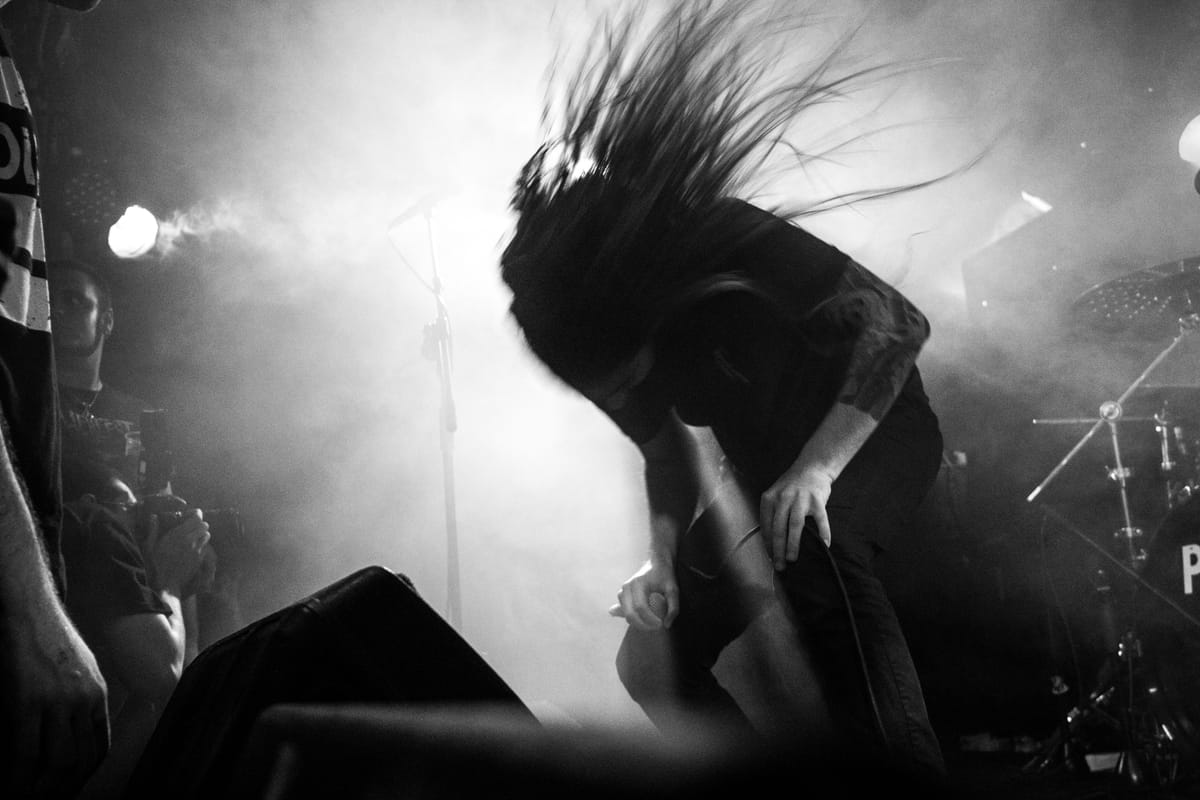
My name is Cosmo Lee. I run a heavy metal blog called Invisible Oranges. Believe it or not, not only is heavy metal music, it can also be quite musical. Some of metal's greatest singers are some of rock music's greatest singers. I have been following Claudia's blog with great interest, since her sage advice applies to singers of all types - including metal ones.
I wondered what she would think of some of metal's most celebrated singers. So I gave Claudia a selection of five songs with no titles or any other identification. They represent five male singers who have been working for decades and have earned the title "classic" in metal. (Ironically, the one with the longest career in metal, #4, was the one whose longevity Claudia questioned.) Her reactions are below.
Iron Maiden - “The Number of the Beast” (1982)
Singer: Bruce Dickinson
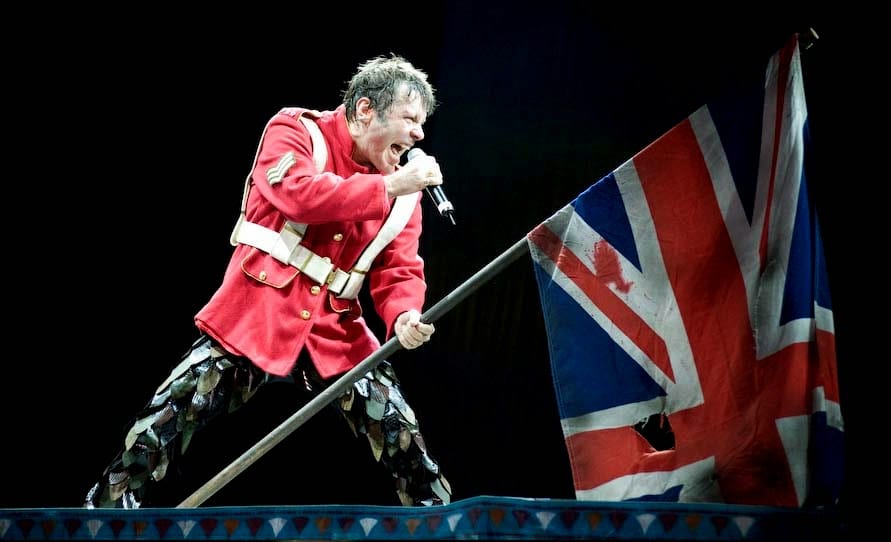
The Number of the Beast
I have nothing but admiration for this singer. Listen how he starts off with a soft growl, then moves seamlessly into a well-supported, sustained high full-voice sound that then evolves into an effortless long scream! His diction is easily intelligible, regardless of the range he's singing in or the effect he's going for. He achieves an intensely rhythmic delivery of the lyrics without losing legato and musical momentum, something a lot of classical singers struggle with, especially when interpreting the many staccato and accent markings that crowd scores by Bellini, Donizetti etc.
A couple of observations for my classical readers:
- There is a visceral dramatic intensity driving this singing. Many rock and metal singers are tenors who sustain much higher, much longer than operatic tenors are ever required to. It's not just the microphone that makes this possible. These guys are singing their guts out with incredible commitment. Intention is a very powerful thing.
- Notice the rasp that occasionally colors his sound. This is an effect that is totally distinct from strain - his entire larynx and throat needs to be completely loose and free to respond this way. In some of the following examples, you'll hear singers deliberately making their voice more shallow, shrill, nasal or "harsh". If they know what they're doing, they can set up all of these effects without creating resistance and strain. You can tell the difference in much the same way you would listen to a classical singer – free singing is like a massage, while entangled singing makes you sympathetically tighten up your own throat.
Black Sabbath - "Falling Off the Edge of the World" (1981)
Singer: Ronnie James Dio
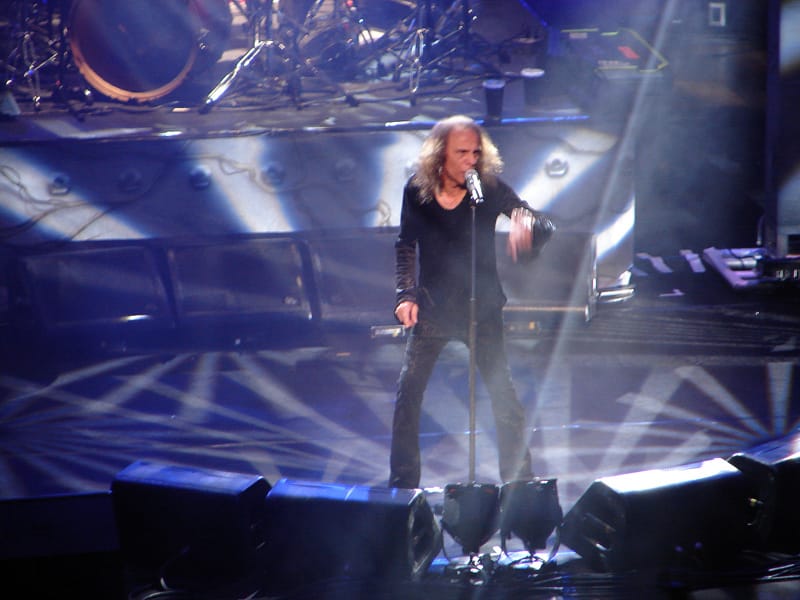
Falling Off the Edge of the World
This is another very fine singer. His voice is so naturally resonant–he reminds me of Freddy Mercury. Like the first singer, he performs with perfect legato, clear diction, and a consistent, organic vibrancy. He arranges his resonance space to create a shallow snarl without setting up any resistance for his breath. You can tell how healthy his delivery is from the way he moves in and out of brief moments of harmony with the other tracks with impeccable intonation.
Mercyful Fate - "Gypsy" (1984)
Singer: King Diamond
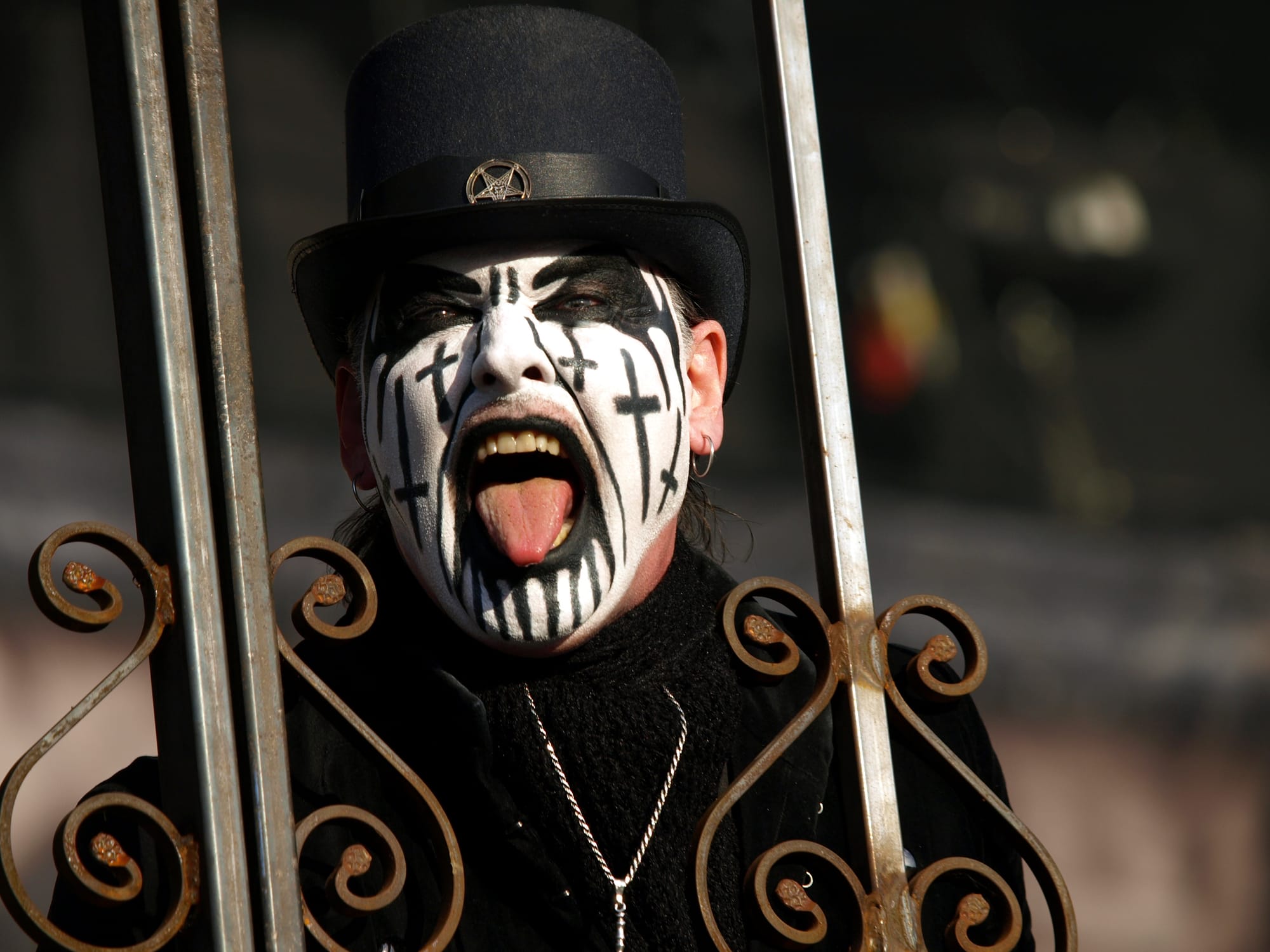
Gypsy
Here is some impressively artful singing. He begins in full-voice tenor fraught with sobbing verismo-like ornaments and then wails in an ultra-high, very focused countertenor, alternating these two approaches throughout the song, at times even within the same phrase. But not only do I not understand a single word he's saying, I don't even know what the overall message or emotion of the song is supposed to be! It is true of classical singing as well as for any other style: there is no need to sacrifice communication for the sake of stunning effects like this. All I hear is virtuosity. At first it's cool, then it gets boring, and you shouldn't feel bored listening to metal.
Black Sabbath - "War Pigs" (1970)
Singer: Ozzy Osbourne
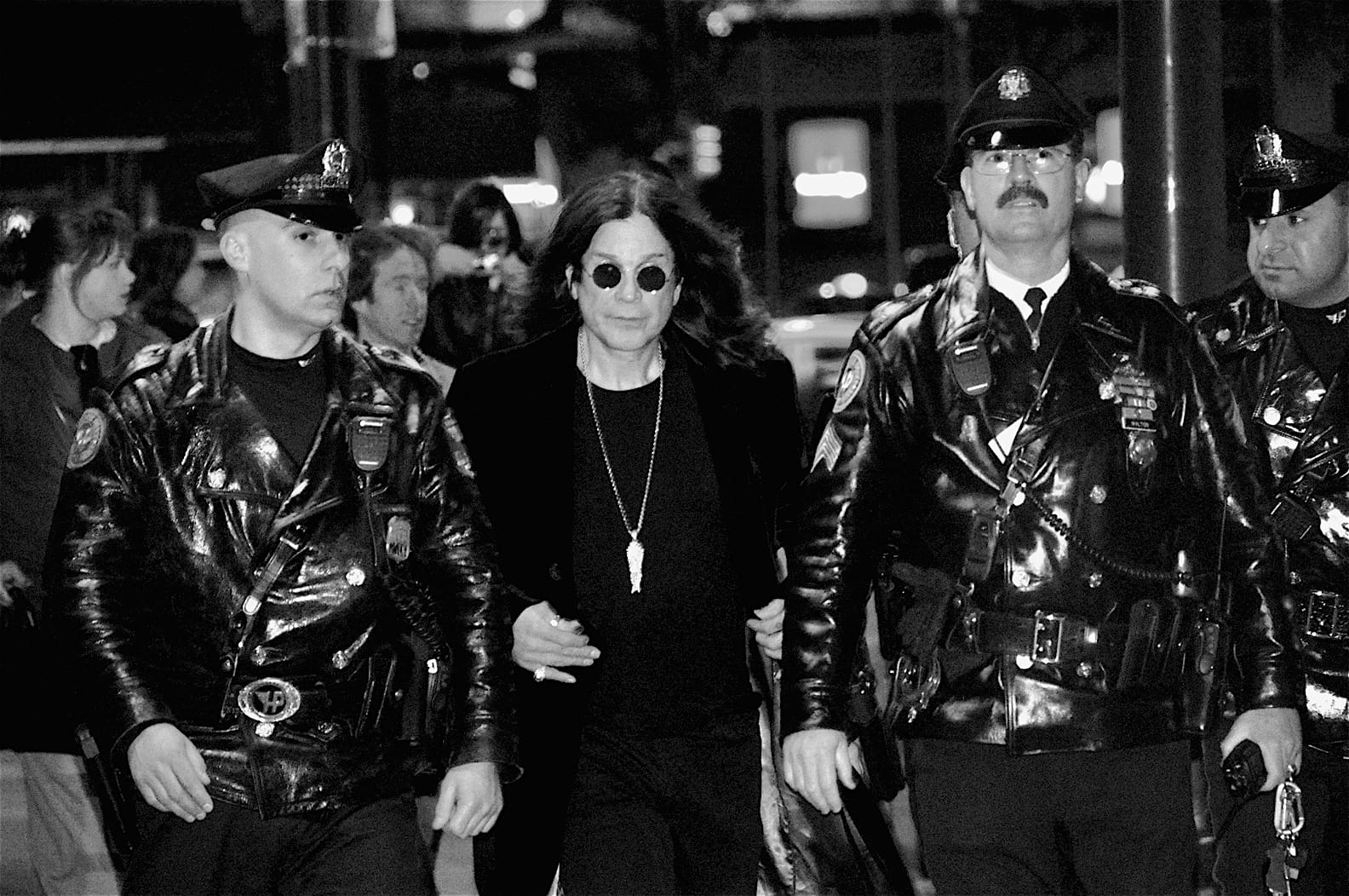
War Pigs
This is a singer with decent diction and good musical instincts but no command of vocal technique. He is massively over-adducting his vocal folds while driving enough air through them to get them to speak, but his throat is so tight that there is no flow or resonance. His rhythmic punctuation of the lyrics is very distracting, in contrast with Singer #1 who delivered his text with rhythmic accents that served, rather than detracted from the flow of music and poetry. It hurt my throat so much to listen to him that I was tempted to ask Cosmo how long his career lasted before he either washed out or needed surgery. The entire range of his singing is contained within a single octave–with the exception of the moment when he yells "Oh Lord!" a little higher, in my opinion the only quasi-free vocal sound on the entire track.
[I felt bad when I discovered that I had given so scathing a review to this beloved pop culture icon and the only one of these five singers I had even heard of, but Cosmo assures me that such mercilessness is The Metal Way!]
Judas Priest - "Dreamer Deceiver" (1976)
Singer: Rob Halford
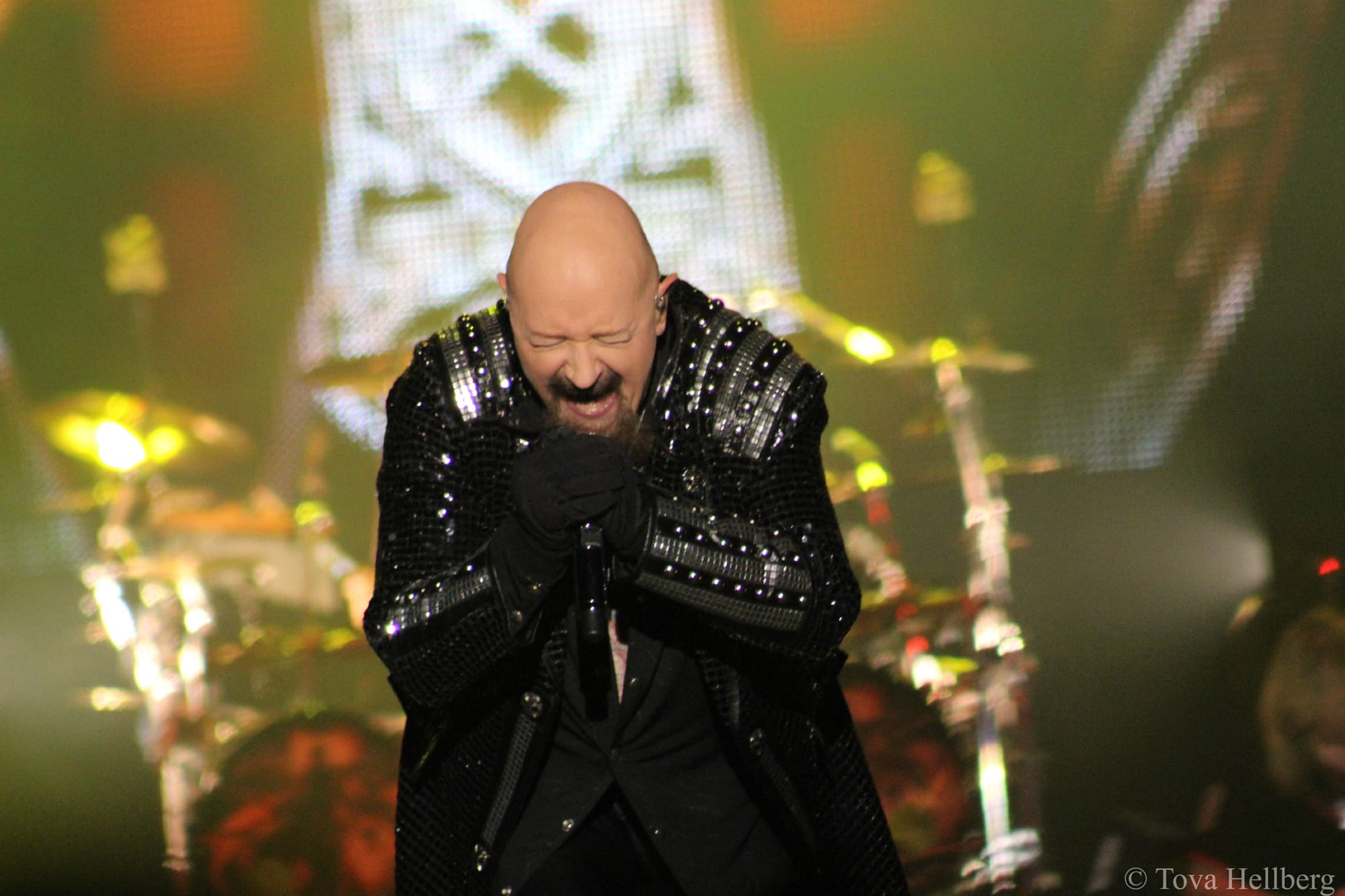
Dreamer Deceiver
This singer has a fabulous range of vocal colors and effects to choose from. His diction is easy to understand and his phrasing is lovely throughout. He begins with such a high gorgeous, resonant messa di voce that I was surprised to hear how low his actual full singing voice sits once he moved into it. Clearly he had been singing with a somewhat elevated larynx when he started out so high, and later in the song when he moves into a more shrill, high sneer or a scream you can tell his larynx is in a much higher position once again. The high singing and screaming is still relatively free, but I feel that it would be even more impactful if he would master a vocal technique that would enable him to better integrate all of these different things he does so well, primarily with the goal of incorporating the depth and resonance of his natural low sound into the high stuff. He is the only one of the five who I truly wish would visit my studio some time.
I had a great time working on this post! Visit Invisible Oranges on Friday, 8/29 for Cosmo's version of my reviews.
If this post resonated with you, please subscribe to my Ghost. Subscriptions can be either free or paid.
- Your attention is your most valuable currency, so free subscriptions are deeply appreciated!
- Paid subscriptions from those who can comfortably afford it help transition my writing from unpaid to paid labor.
Schedule a complimentary consultation for voice lessons here.
Schedule a voice lesson here.





